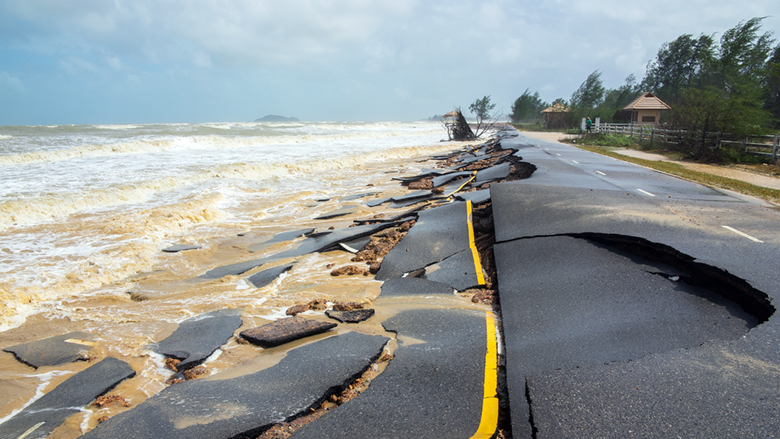Small Island Developing States (SIDS) are a group of countries located across the world in the Caribbean, Pacific, Africa, and Indian Ocean regions. SIDS are disproportionately exposed and vulnerable to natural hazards. In additional, climate change is poised to increase the frequency and severity of extreme weather events, such as hurricanes, storm surges, extreme winds, and flooding. When disaster strikes, damage to transport infrastructure typically accounts for a large portion of economic losses, resulting in heavy fiscal strains on SIDS’ small economies and social burden. As a consequence, to physical damage to the infrastructure, transport disruptions can cripple key economic sectors like tourism, fishing, or agriculture, and cut off access to healthcare, education, and other essential services. Damage to critical assets like roads, ports or airports also impedes disaster response and recovery operations, further increasing the overall vulnerability of communities living in SIDS. Enhancing transport resilience brings significant benefits to SIDS by reducing losses in both assets and well-being. There is a need to improve the management of transport assets and to plan for growing risks. In the face of a changing climate, disasters risk needs to be taken into consideration at all stages of the infrastructure lifecycle, from the planning phase to engineering designs, operations, maintenance, and contingency programming. The World Bank is committed in supporting client countries to strengthen their institutional capacity and systems by enhancing resilience to the impacts of climate change and disasters. The course aims to provide strategic, experiential, and practical knowledge on how to integrate climate and disaster risk considerations in the management of transport assets in Small Island Developing States. The course provides a holistic overview of Transport Asset Management Systems and a framework for integrating climate and disaster risk considerations. This will enable task teams and country counterparts to identify opportunities to enhance transport asset management systems and investment project identification, preparation and implementation.

About Open Learning Campus
All registered users of OLC can experience its impact of new features. If you are already registered with OLC you can directly sign in to the new system. If you are a new user then do register to avail of the dynamic learning opportunities from WBG to deepen your knowledge and skills on a variety of development related topics. For example, you will have access to timely resources such as:
- Ted like video talks
- Podcasts
- Formal learnings (i.e., Self-paced courses/Facilitated Courses/MOOCs)
- Live events and Knowledge Exchanges
- Communities of Practice
You will have access to an extensive catalog of resources through which you can search and discover relevant learning materials.
How to Access the Course Content
To access the course content, please follow the below registration steps:
- Open https://wbg.edcast.com/
- Navigate to “No account?” and select “Create one!”. Select “Next” to continue with the next step.
- Enter the code that you received via email at the “Enter Code” field. Select “Sign in” to continue with the next step.
- Fill in your First and Last Names and select a preferred communication language. Select “Next” to continue with the next step.
- Select up to five learning goals. Select “Next” to continue with the next step.
- Select up to five skills. Select “Next” to continue with the next step.
- Congratulations and welcome to the OLC! You’ll find additional tips and suggestions inside the “Welcome to the Open Learning Campus” channel at the top of the home page.
Course Details
- Mode: Self-Paced
